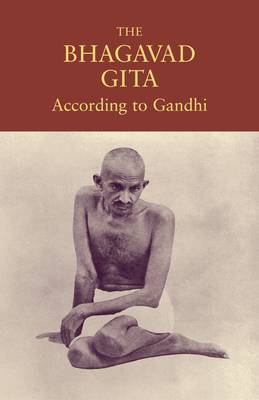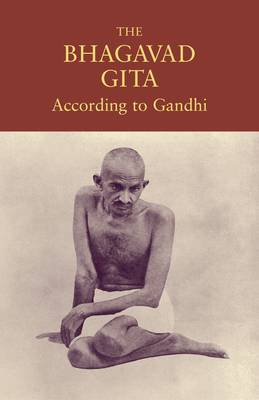
En raison d'une grêve chez bpost, votre commande pourrait être retardée. Vous avez besoin d’un livre rapidement ? Nos magasins vous accueillent à bras ouverts !
- Retrait gratuit dans votre magasin Club
- 7.000.000 titres dans notre catalogue
- Payer en toute sécurité
- Toujours un magasin près de chez vous
En raison de la grêve chez bpost, votre commande pourrait être retardée. Vous avez besoin d’un livre rapidement ? Nos magasins vous accueillent à bras ouverts !
- Retrait gratuit dans votre magasin Club
- 7.000.0000 titres dans notre catalogue
- Payer en toute sécurité
- Toujours un magasin près de chez vous
19,45 €
+ 38 points
Format
Description
Regarded in India as one of the most important books of the 20th century, Gandhi's commentary on this classic Hindu text addresses the issues he felt most directly affected the spiritual lives of common people. The Bhagavad Gita, also called The Song of the Lord, is a 700-line section of a much longer Sanskrit war epic, the Mahabharata, about the legendary conflict between two branches of an Indian ruling family. Framed as a conversation between Krishna, an incarnation of the god Vishnu, and a general of one of the armies, the Gita is written in powerful poetic language meant to be chanted. Equally treasured as a guide to action, a devotional scripture, a philosophical text, and inspirational reading, it remains one of the world's most influential, widely read spiritual books.
The Bhagavad Gita According to Gandhi is based on talks given by Gandhi between February and November 1926 at the Satyagraha Ashram in Ahmedabad, India. During this time--a period when Gandhi had withdrawn from mass political activity--he devoted much of his time and energy to translating the Gita from Sanskrit into his native Gujarati. As a result, he met with his followers almost daily, after morning prayer sessions, to discuss the Gita's contents and meaning as it unfolded before him. This book is the transcription of those daily sessions.
The Bhagavad Gita According to Gandhi is based on talks given by Gandhi between February and November 1926 at the Satyagraha Ashram in Ahmedabad, India. During this time--a period when Gandhi had withdrawn from mass political activity--he devoted much of his time and energy to translating the Gita from Sanskrit into his native Gujarati. As a result, he met with his followers almost daily, after morning prayer sessions, to discuss the Gita's contents and meaning as it unfolded before him. This book is the transcription of those daily sessions.
Spécifications
Parties prenantes
- Auteur(s) :
- Editeur:
Contenu
- Nombre de pages :
- 248
- Langue:
- Anglais
Caractéristiques
- EAN:
- 9781556438004
- Date de parution :
- 19-05-09
- Format:
- Livre broché
- Format numérique:
- Trade paperback (VS)
- Dimensions :
- 140 mm x 213 mm
- Poids :
- 317 g

Les avis
Nous publions uniquement les avis qui respectent les conditions requises. Consultez nos conditions pour les avis.






